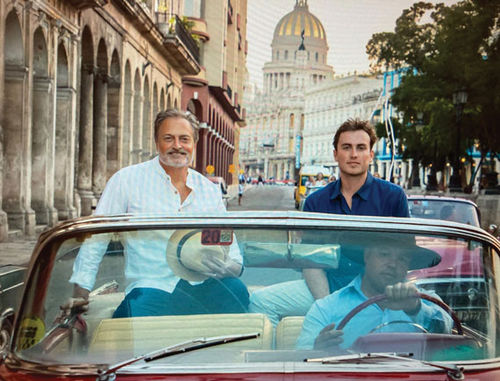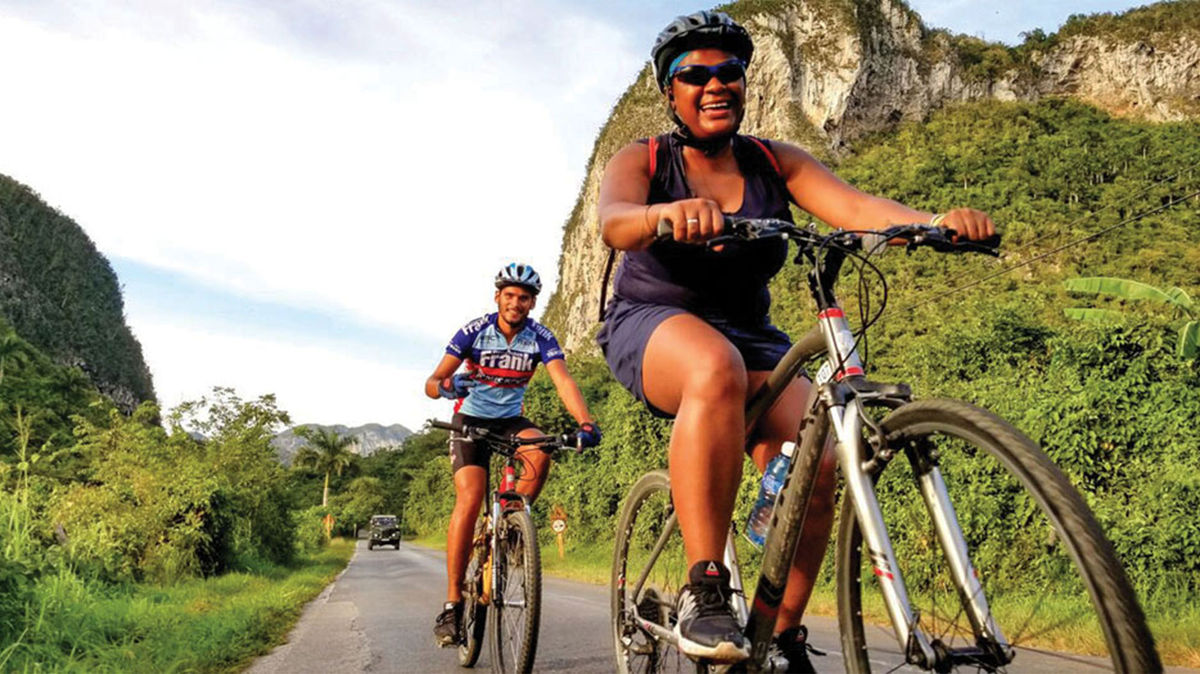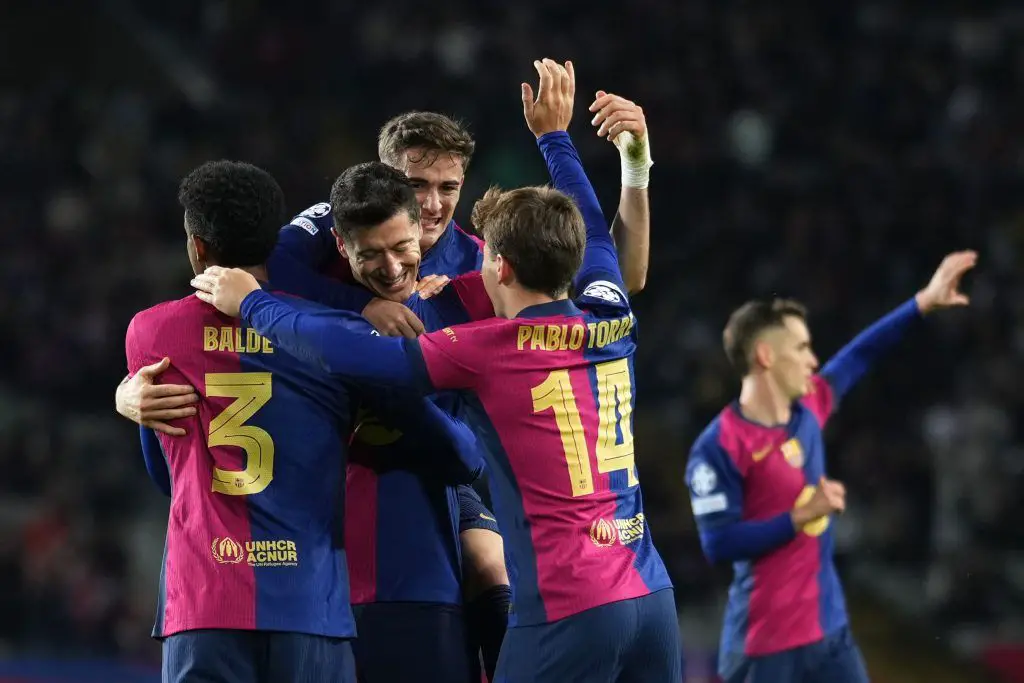Political hurdles have long hampered Cuba tourism, but recent challenges related to aging infrastructure and natural disasters have created a fresh wave of headwinds for the Caribbean destination.
Jesus Noguera, a Havana-based tour operator and founder of Cuba Careo Tours, called the last month one of “the worst times for the tourism industry in Cuba” in recent memory, following two hurricanes, an earthquake and power grid issues, including a nationwide blackout on Oct. 18.
On the heels of that initial blackout, Hurricane Oscar hit eastern Cuba on Oct. 20, followed on Nov. 7 by Hurricane Rafael making landfall in western Cuba as a Category 3. Adding to these difficulties, a 6.8 magnitude earthquake struck the country’s eastern region on Nov. 10.
Compounding the impact of the weather events are the country’s structural issues. Noguera pointed to Cuba’s deteriorating power infrastructure, citing Soviet-era plants in need of modernization and challenges related to securing reliable fuel sources.
Jesus Noguera
These obstacles come as Cuba’s visitor numbers continue to lag well behind 2019 levels. According to data from the National Statistics Office of Cuba, the country reported approximately 1.7 million international visitors for the year through September 2024, just 49.5% of prepandemic levels from the same period in 2019.
“We’re seeing the same kinds of figures that we used to have 20 years ago,” Noguera said. “We didn’t reach 2 million tourists last year, and I doubt that this year we’re going to have 2 million tourists.”
That’s a far cry from what Noguera described as the “golden years” of the Obama administration, when improved U.S.-Cuba relations helped the country reach a peak of nearly 5 million tourists annually. Much of those gains were erased by Trump-era restrictions, however, and those policies largely remained in effect under the Biden administration.
“And now, with the never-ending crisis in our power grid, and inflation also rampant in Cuba, I don’t see when the situation is going to stabilize,” Noguera said.
Cuba tours are continuing
Although Cuba’s recent struggles have drawn widespread media attention, tour operators say that most tourism is continuing normally, particularly in Havana.
Noguera was set to host a group of 20 visitors from San Francisco arriving for a weeklong visit on Nov. 17. He acknowledged they were “very nervous,” but he encouraged them not to cancel their trip.
“For those who are hesitant, I would recommend coming with a private tour guide or company,” he said. “The private sector is working very well — go to any private restaurant in Cuba, and you have the food you need. The private sector is booming.”
Leigh Barnes, president of the Americas for Intrepid Travel, said that the company has not had to pause its Cuba tours, and while bookings may slow in the immediate term due to recent events, cancellations have remained in the single digits.
“We’ve been able to run our trips throughout the power outages and climate incidents,” Barnes said. “We’ve had to change some itineraries, but everyone’s been safe.”
The key in keeping business on the books, he added, has been clear communication with guests about what to expect.
“We’re a bit more direct, saying, ‘Make sure you bring these things,’ where it’s normally up to the customer to make that decision,” said Barnes, citing items like extra battery banks or headlamps.
Accommodation providers have also adapted to the challenges. According to Barnes, many private bed-and-breakfasts and other boutique properties are equipped with generators, though fuel access remains an ongoing concern.
“We’ve made changes on the ground, but the feedback from our customers is still really strong — it’s still a great experience,” Barnes said.
Cuba’s luxury travel segment also appears particularly resilient.

Cultural Cuba owner David Lee (left) and marketing director Nathan Lee. Photo Credit: Cultural Cuba
David Lee, owner of high-end tour operator Cultural Cuba, said his company remains “basically sold out” for upcoming dates. And contrary to overall Cuba tourism levels, his business has expanded by “about 400%” since 2019.
The recent nationwide blackout, while unprecedented, was resolved within three days for most of Havana, Lee said. He also reported that subsequent hurricane-related outages were restored even more quickly, with power returning to about 75% of Havana within 48 hours of Hurricane Rafael.
As a result, Cultural Cuba continues to operate Havana tours as usual, supported by a network of boutique accommodations and hotels that feature reliable backup power systems.
“There are some cities farther into the countryside, like Santiago, where we just don’t provide service much anymore, and we’re not going to until we’re really confident” in their ability to keep the lights on, Lee said, emphasizing a need to “err on the side of caution.”
Tour operators’ expectations under Trump
But even as Cuba’s tourism sector works to regain its footing, the upcoming political transition in the U.S. looms.
The opening of tourism to Cuba starting in 2015 allowed U.S. cruise lines, airlines, hotels and tour companies to bring American tourists to the island in droves for the first time in 50 years.
However, Florida Sen. Marco Rubio, who was nominated on Nov. 13 to be U.S. secretary of state, was a vocal critic of Obama’s Cuba policy and the opening of travel.
Lee, for one, remains unfazed about a second Trump administration.
“We’ve already been through four years in the previous administration,” he said, adding that he does not think Cuba will be a Trump priority. “He’s got a lot on his plate and a lot of other things to worry about. At this point, we’re not that concerned that there would be something that would appreciably affect what we do.”











